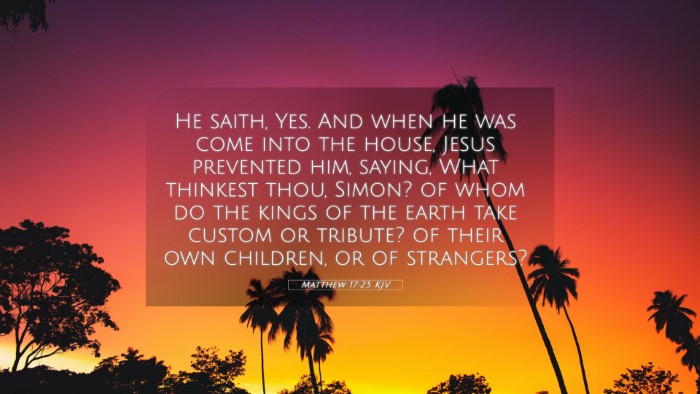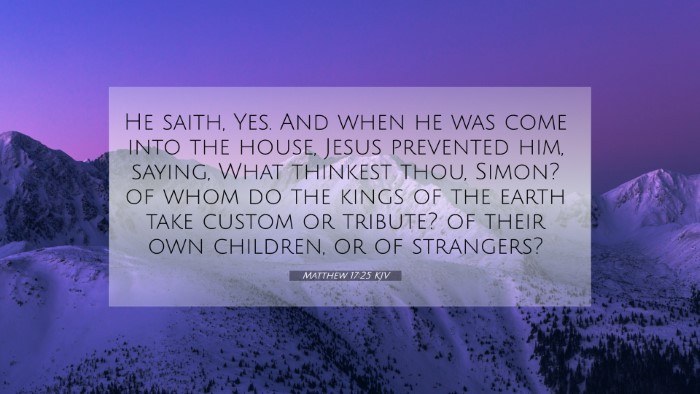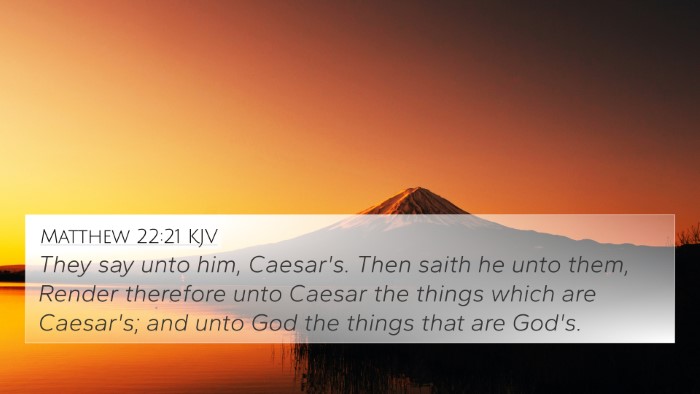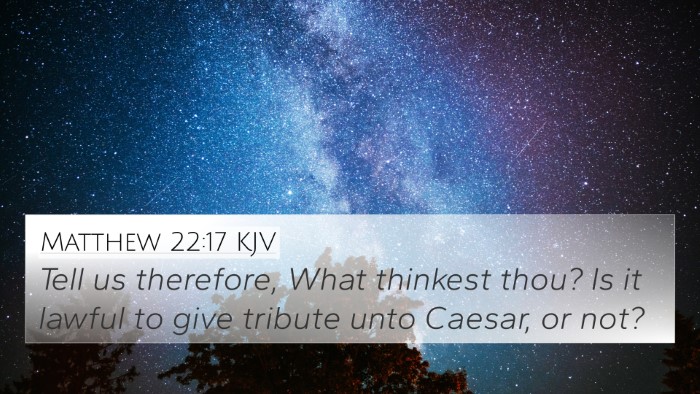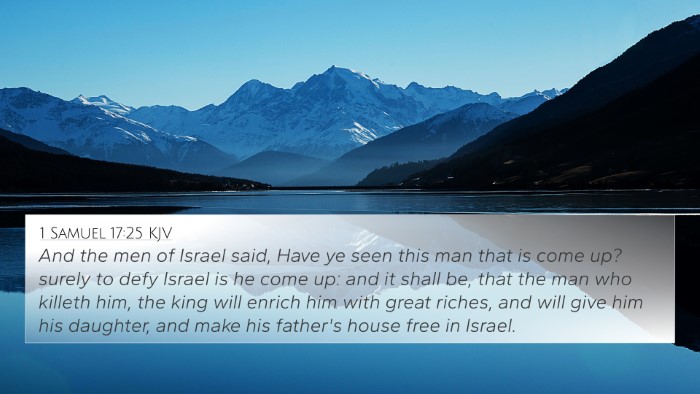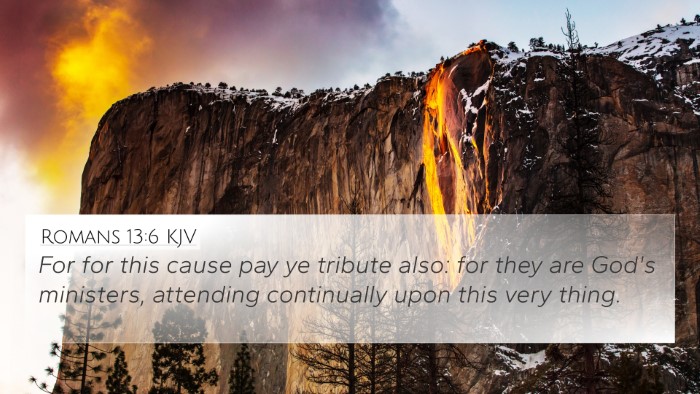Understanding Matthew 17:25
Verse: "He saith, Yes. And when he was come into the house, Jesus prevented him, saying, What thinkest thou, Simon? of whom do the kings of the earth take custom or tribute? of their own children, or of strangers?" (Matthew 17:25, KJV)
Verse Meaning and Interpretation
This verse occurs in a context where Jesus is teaching his disciples about the nature of his kingdom and the implications of earthly customs on spiritual truths. The dialogue between Jesus and Peter illustrates a deeper theological principle regarding the relationship between believers and the laws of the earthly realms.
Key Themes
- Royal Identity: The mention of kings and their practices indicates a reflection on the authority of Christ, the King of kings.
- Freedom from Tribute: The implication that the children (of the King) are exempted from tax reveals the special status of believers in the kingdom of God.
- Divine Wisdom: The precognitive statement of Jesus demonstrates His omniscience and authority over earthly matters.
Commentary Insights
Matthew Henry
Henry emphasizes that Jesus, being the Son of God, does not owe tribute as a son to the King. This reflects the privileges bestowed upon those who belong to Christ. It goes on to expound on the great grace and freedom that comes with being part of God's family.
Albert Barnes
Barnes points out that Jesus’ inquiry to Peter about who pays tribute illustrates the responsibilities that come with earthly authority versus spiritual identity. He expounds that while earthly kings may demand tribute from their subjects, the true King (Jesus) has the right to exempt His children from such obligations.
Adam Clarke
Clarke suggests that this passage offers both a lesson in humility and a revelation of the nature of Christ's kingdom. Clarke notes that although Jesus could have demanded tax as the Messiah, He chose not to, demonstrating grace and generosity in His ministry.
Cross-References
Matthew 17:25 has several connections with other scriptures that can deepen understanding:
- Matthew 18:1-4: Discusses the greatness of humility in the kingdom of heaven.
- Romans 13:1-7: Explores submission to governing authorities and the role of taxes.
- John 8:36: Declares the freedom Christ brings, akin to being free from earthly taxes.
- Luke 20:22-25: Addresses the question of paying taxes to Caesar, indicating the dual citizenship of believers.
- Philippians 3:20: Reminds believers that their citizenship is in heaven and not of this earth.
- Galatians 4:7: Highlights the believer’s status as an heir, further emphasizing freedom from the law.
- 2 Corinthians 5:20: Affirms that believers are ambassadors for Christ, representing a higher kingdom.
Thematic Bible Verse Connections
This verse can be linked to other themes within scripture, including:
- Freedom in Christ: Explore Galatians 5:1, which speaks of liberty in faith.
- The Nature of God’s Kingdom: Consider Matthew 6:33, which instructs to seek first the kingdom of God.
- Kingdom Authority: Reflect on 1 Peter 2:9, which identifies believers as a chosen generation, royal priesthood.
Conclusion
Matthew 17:25 serves as a pivotal teaching moment where Jesus reveals the relationship between His divine sonship and the imposition of worldly customs such as tribute. These interpretations from public domain commentaries offer depth, bridging connections between the realm of the earthly and the spiritual, emphasizing believers' identity in Christ.
Tools for Further Study
To study this verse and its connections further, consider these tools:
- Bible concordance for thematic searches.
- Bible cross-reference guide to identify parallels.
- Comprehensive Bible cross-reference materials for deeper exploration.
Engagement with the Text
To truly understand Matthew 17:25 and its implications, readers are encouraged to reflect on the nature of their citizenship—both in this world and in the kingdom of heaven, as Jesus exemplifies freedom and authority through His teachings.

